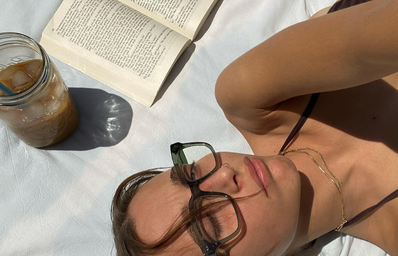Denial is an extremely common and unavoidable topic in both college life and adulthood.
The media, hormones, expectations, and false realities make denial really difficult to avoid slipping into. Our instinct is to assume the best in people. Our instinct is to assume the best in situations and outcomes as well.
Is there something that you may be creating a “dream” reality about? Something maybe you want to believe is a certain way, but truthfully, that just isn’t the case?
We have pre-existing attitudes that make us feel a certain way because we choose what we see and what we remember. According to intentional bias, we assume what we want to assume and ignore what we wish to. This goes along with the common phrase “ignorance is bliss”!
A study around the death penalty (brutal, I know) proved that people believed the information that aligned with their favor.
For example, if you really want to see pink, you will see pink even if an object is light purple.
In college, we may think we have the most accurate or ideal perception of a situation, a person or even our futures.
It is easy to fall into a pattern of denial, where you make excuses for every wrong. It’s easy to look on the bright side and assume the best. Make sure to guard your heart and just as importantly, your beliefs.
If our attitudes are tied to our social identity, we will not want to change our beliefs.
This goes hand in hand with religion and stubbornness. This could also have an effect in hypocrisy and why people act the way they do and believe the things they do with no wiggle room for outside beliefs or even facts.
If we give extended thoughts to an issue, our attitudes will align with the polarizing effect of the issue. In psychology, this is called thought polarization.
When we are presented with small counterarguments against our attitudes, the small counterarguments create a large resistance around the presented topic.
Naturally, we are extremely resistant to change. We dig our heels in and insist on certain beliefs. This is called attitude inoculation.
Currently, society is highly polarized on mask and vaccine mandates. Both sides of the issue present counter arguments through media, comments, health reports…etc.
This should make you reflect on WHY you hold a certain belief that ties to an attitude.
It’s easy to say, we are now much more polarized than at the beginning of the pandemic.
These thoughts and patterns tie into aspects and situations much smaller than your classic pandemic. We are often influenced by our thoughts, which can sometimes lead to unhealthy patterns. We may train ourselves to think things are a certain way, when in reality they are totally different.
Make sure to become aware and respond to social and mental patterns that have a big influence on our thoughts and beliefs. Recognizing denial is an extremely hard step, but in the long run, it will make you a more open person.


